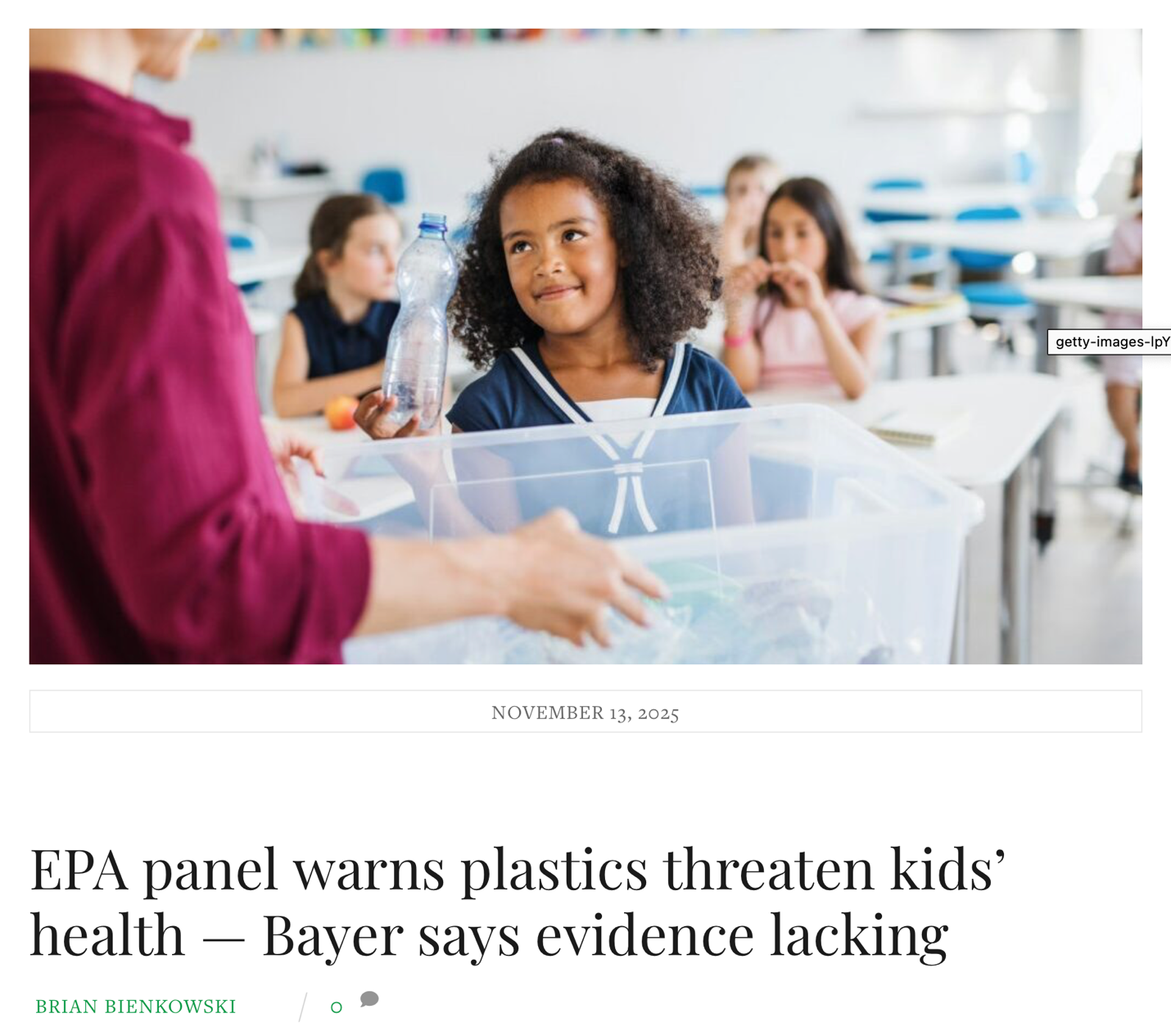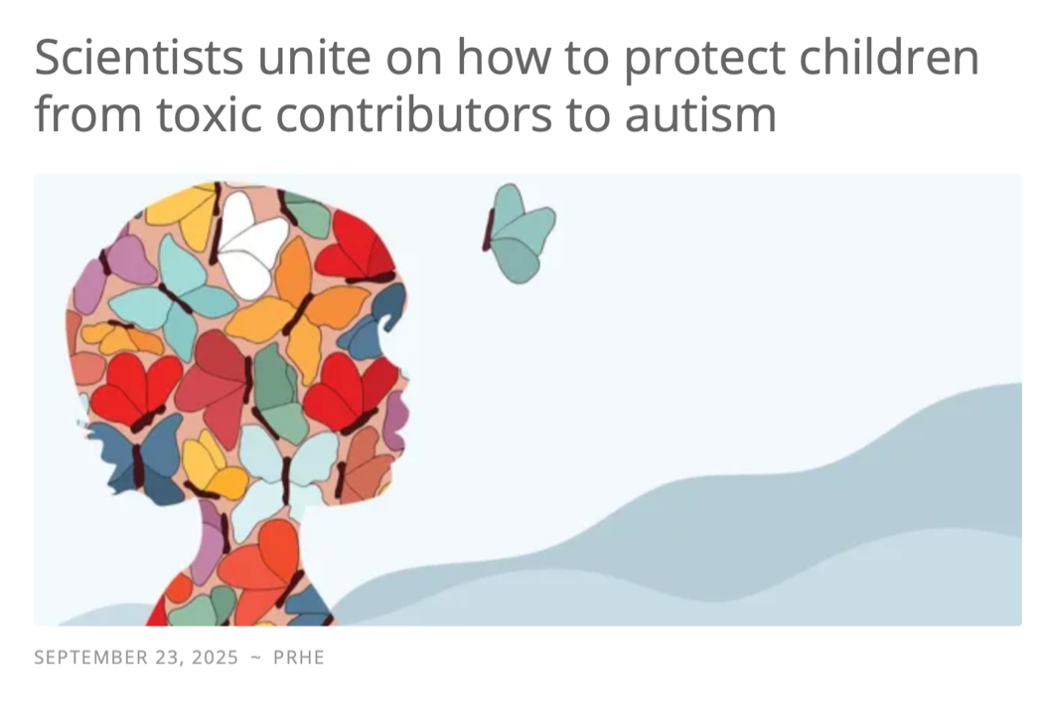The Chicago Tribune continues to do some very fine investigative reporting on pesticides like Dow's Enlist Duo that are fast-tracked through the EPA's registration system. I say "registration," note, not "approval" or "regulatory." Many people believe that the EPA is protecting us from harmful pesticides and other chemicals when that is very far from the case. Enlist Duo combines both glyphosate and 2, 4-D to try to fight the superweeds fostered by Round-Up Ready corn and soybeans. Remember when advocates of GMO foods promised us a reduction in amount of pesticides applied? That is very far from the case, particularly with herbicides on corn, soy, and cotton. Since the introduction of GM crops, pesticide use overall has increased by an estimated 7% (Benbrook 2012). These are just the kind of unthinking exposures that killed my daughter and are fated to kill many more, all for the sake of corporate profits. The common thread with Flint? Trust or lack thereof in the U.S. regulatory system.
Congress questions EPA about Dow's Enlist Duo pesticide risks
Patricia CallahanContact Reporter Chicago Tribune
Thirty-five members of Congress are questioning Environmental Protection Agency Administrator Gina McCarthy about her agency's review of a controversial Dow Chemical Co. weedkiller that was the subject of a Chicago Tribune investigation last year.
In a letter sent to McCarthy late last week, Democratic lawmakers from across the country said they were concerned about the health risks posed by Dow's Enlist Duo herbicide, which combines 2,4-D and glyphosate as a one-two punch to battle weeds that have evolved to become impervious to glyphosate alone. Dow has genetically modified corn and soybeans to make them immune to Enlist Duo so that farmers can spray entire fields with the herbicide, sparing the crops but killing the weeds.
When the EPA approved Enlist Duo in 2014, the agency tossed aside evidence of kidney lesions in lab rats that Dow's own scientists said were caused by 2,4-D, clearing the way for children to be exposed to levels considered for decades to be unsafe, the Tribune investigation found.
"We were concerned to learn that, during this process, EPA dismissed a key study linking 2,4-D to kidney abnormalities based on one scientist's analysis, and in doing so, effectively gave the green light for 41 times more of the chemical to enter the America diet than was previously allowed," the lawmakers wrote.
The EPA is reconsidering its approval of Enlist Duo, but agency officials told the Tribune last December that its scientists solely are determining whether bigger no-spray zones are needed to protect endangered plants near the edges of farm fields. The fact that the agency's review is focusing only on plants and not people was troubling to the lawmakers.
"These actions do not address questions about serious potential health risks brought to light by the Chicago Tribune," the lawmakers wrote.
The congressional group is led by Reps. Earl Blumenauer and Peter DeFazio — both Democrats from Oregon — and includes Rep. Mike Quigley, a Chicago Democrat. The group asked a dozen questions about the EPA's review of the chemical and urged the agency to scrutinize everything from the human cancer risks to the environmental threat that the monarch butterfly faces when the herbicide wipes out its food source, milkweed.
Court clears way for revival of worrisome weedkiller
"Given the widely-known adverse impacts of 2,4-D on human health and the environment, and with little understood about the implications of combining 2,4-D and glyphosate, EPA should use the utmost caution in assessing the safety of Enlist Duo before approving it for continued use," they wrote. "... The public deserves to know how EPA intends to address all of these concerns."
A Dow spokesman did not return a phone call and email seeking comment Friday. Dow has said Enlist Duo is safe and that 2,4-D is one of the most widely studied weedkillers in history.
An EPA spokeswoman declined to comment Friday. The EPA last year said 2,4-D was so safe that nobody would be harmed even if every corn and soybean farmer in America sprayed Enlist Duo.
The EPA's own worst-case estimates of exposure show that young American children could be exposed to levels of 2,4-D that the World Health Organization, Russia, Australia, South Korea, Canada, Brazil and China all consider unsafe, the Tribune found.
Read the full story at http://www.chicagotribune.com/news/watchdog/ct-epa-pesticides-dow-met-20160214-story.html
References
Benbrook CM. 2012. Impacts of genetically engineered crops on pesticide use in the U.S.: The first sixteen years. Environmental Sciences Europe 24:24. Available at http://enveurope.springeropen.com/articles/10.1186/2190-4715-24-24
Callahan P. 2016. Congress questions EPA about Dow's Enlist Duo pesticide risks. Chicago Tribune, February 15. Available at http://www.chicagotribune.com/news/watchdog/ct-epa-pesticides-dow-met-20160214-story.html













